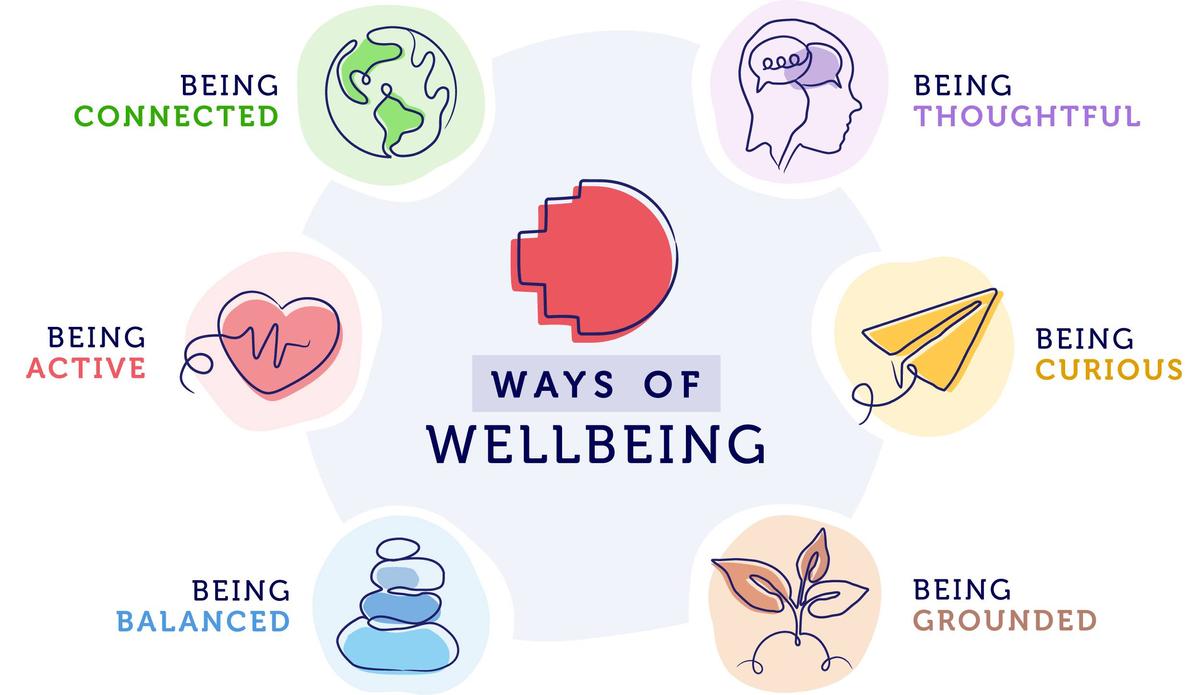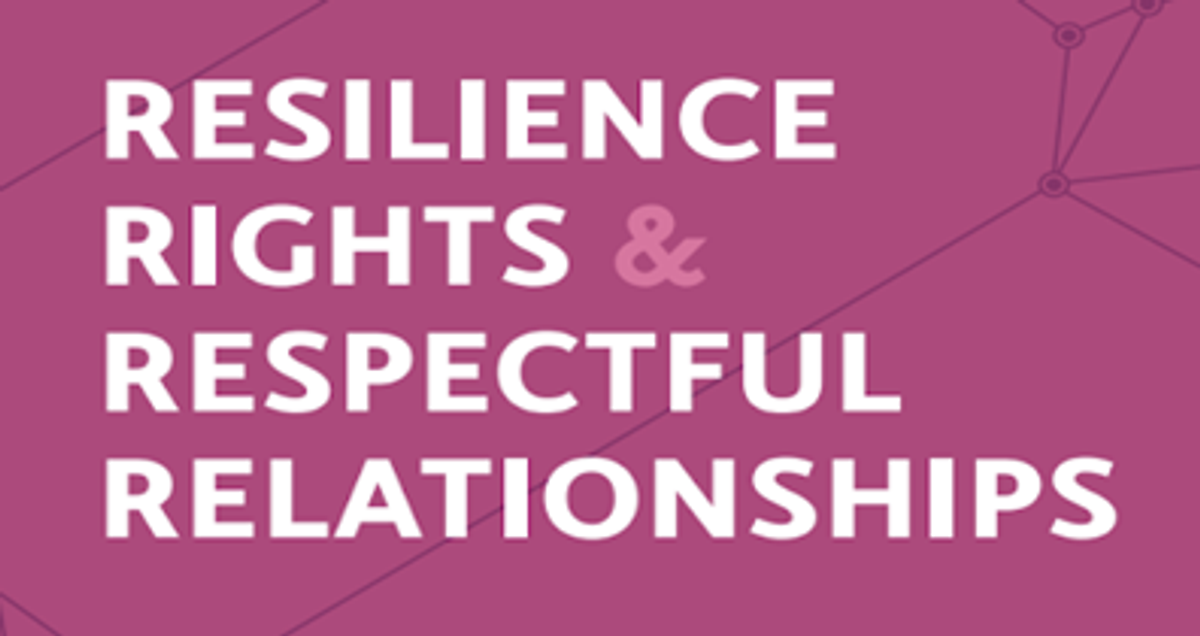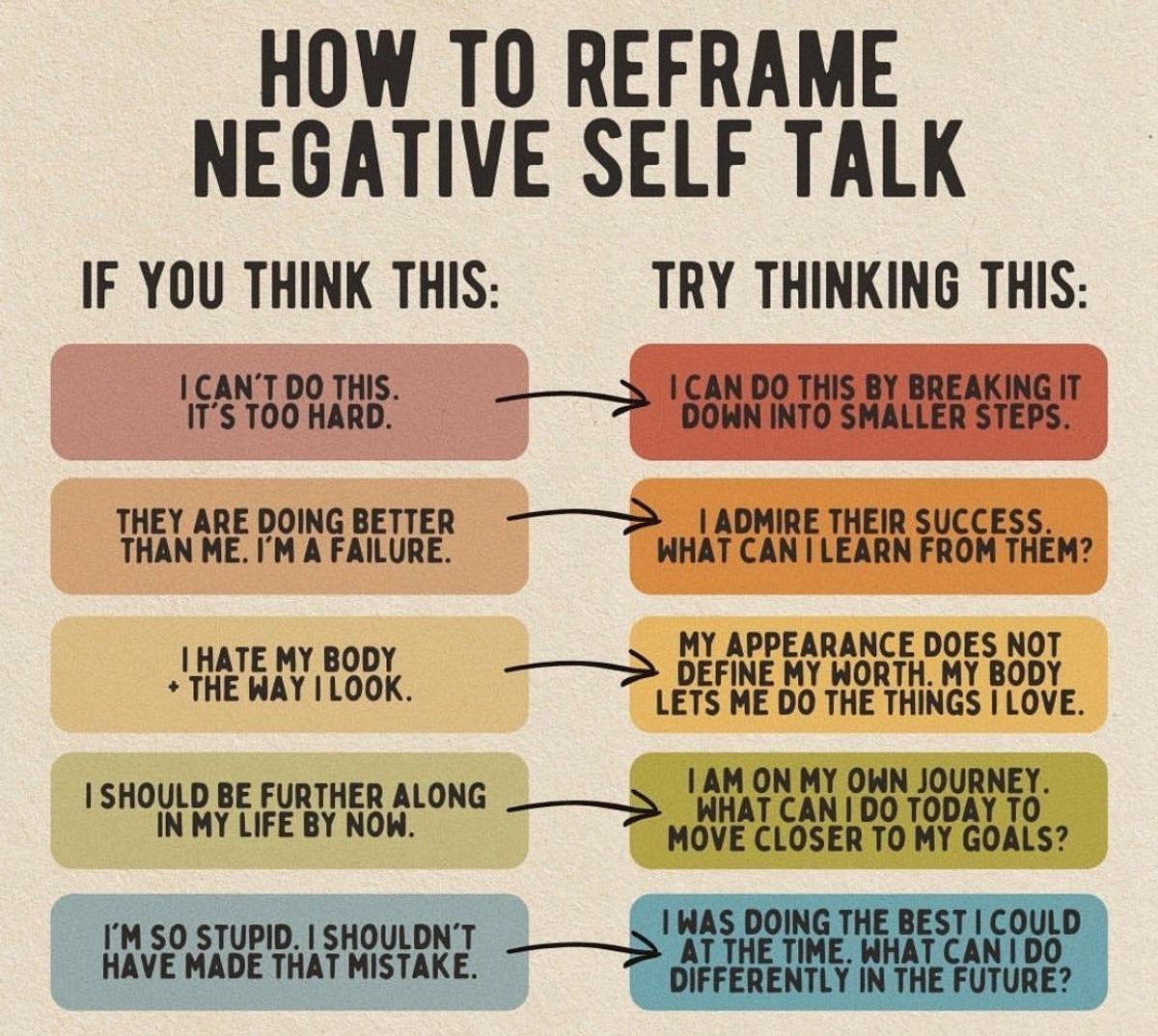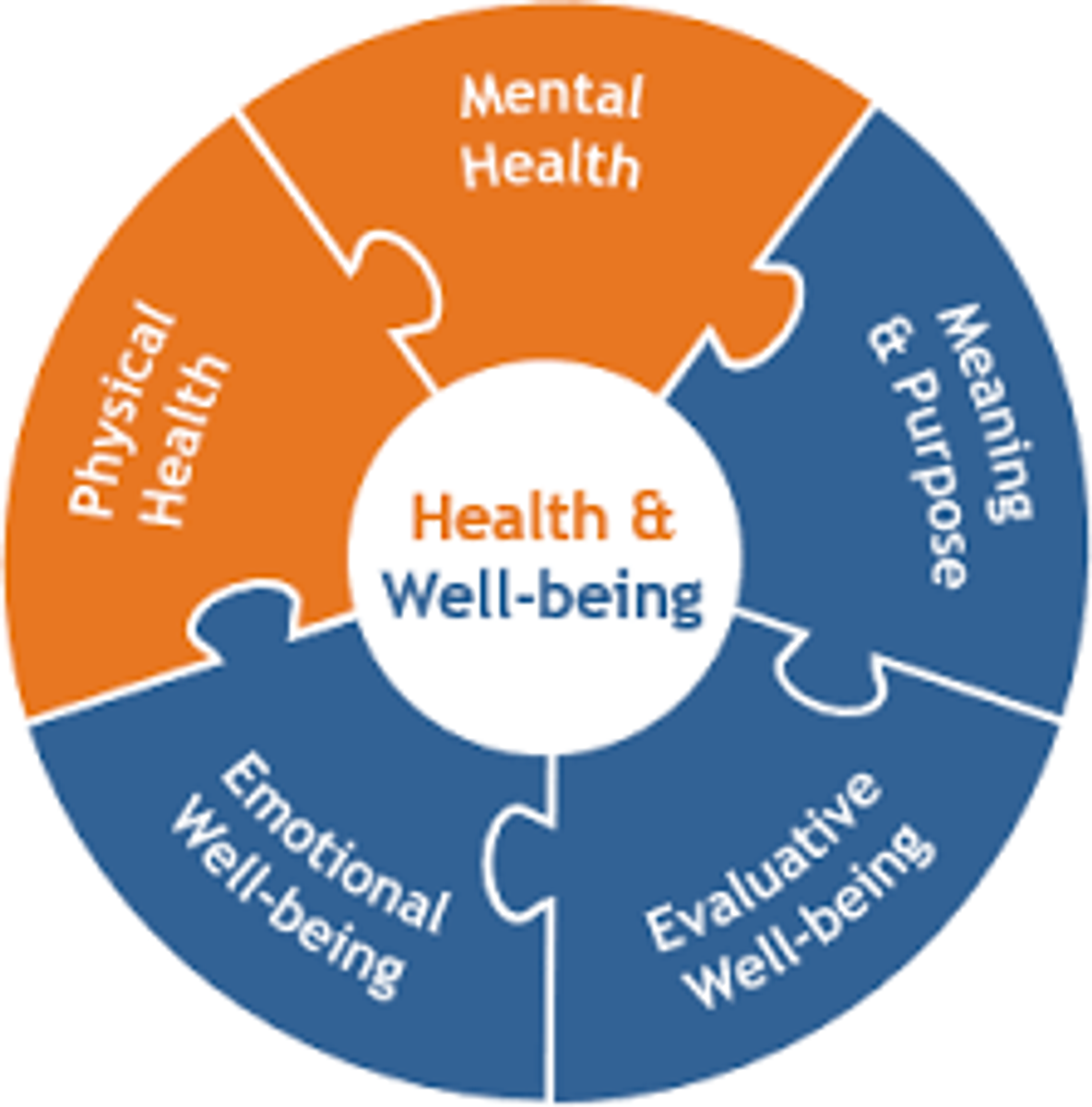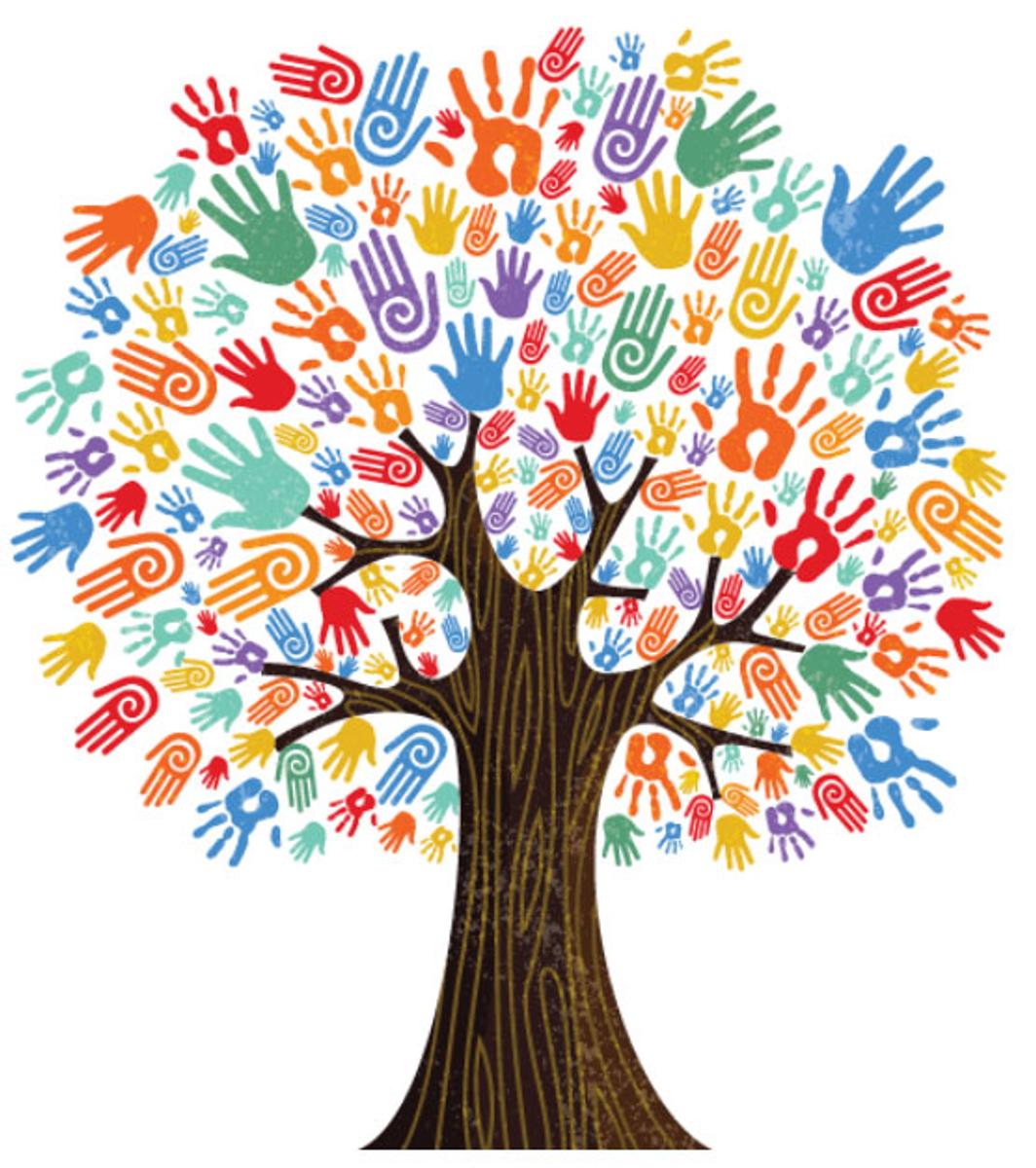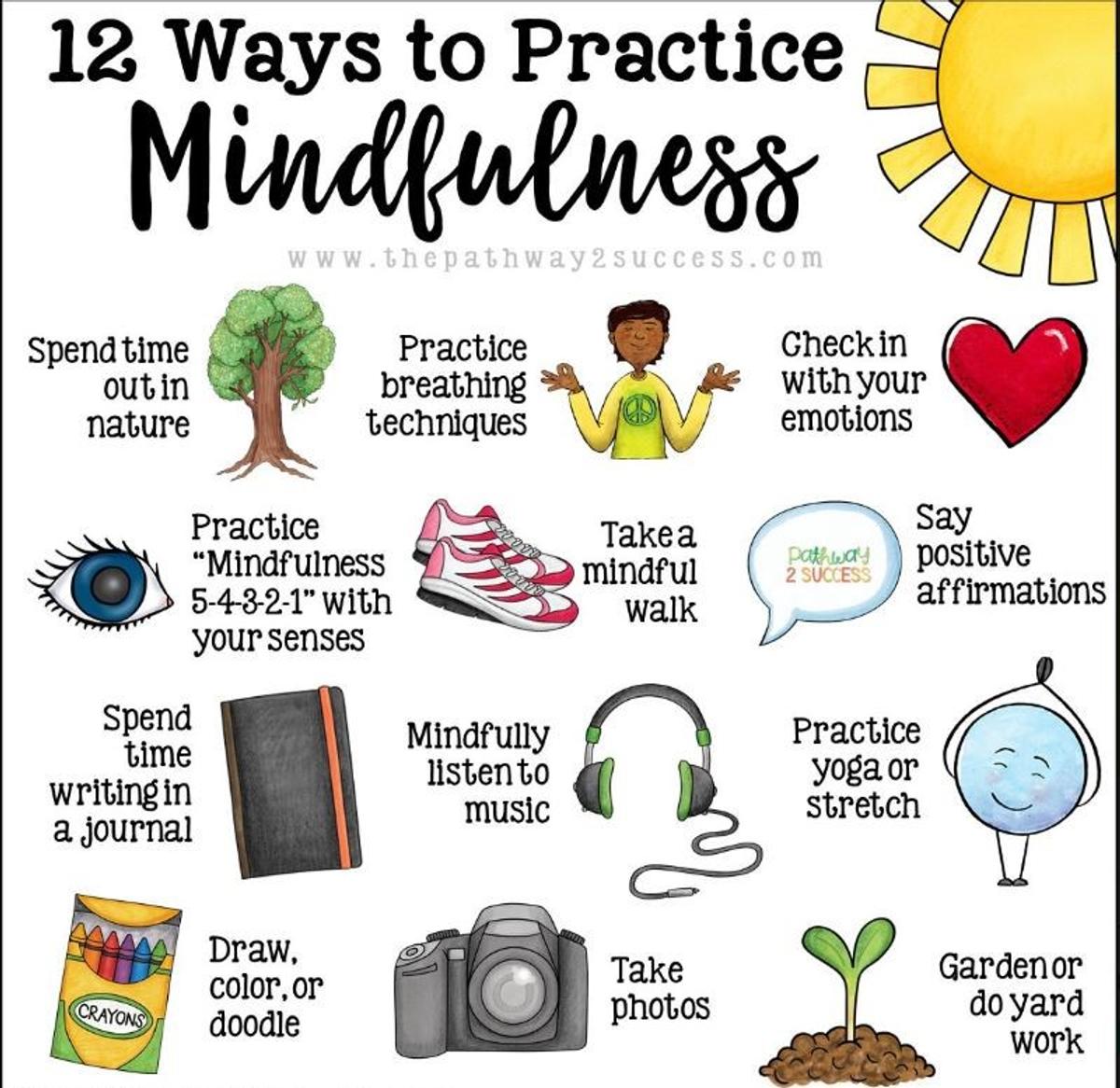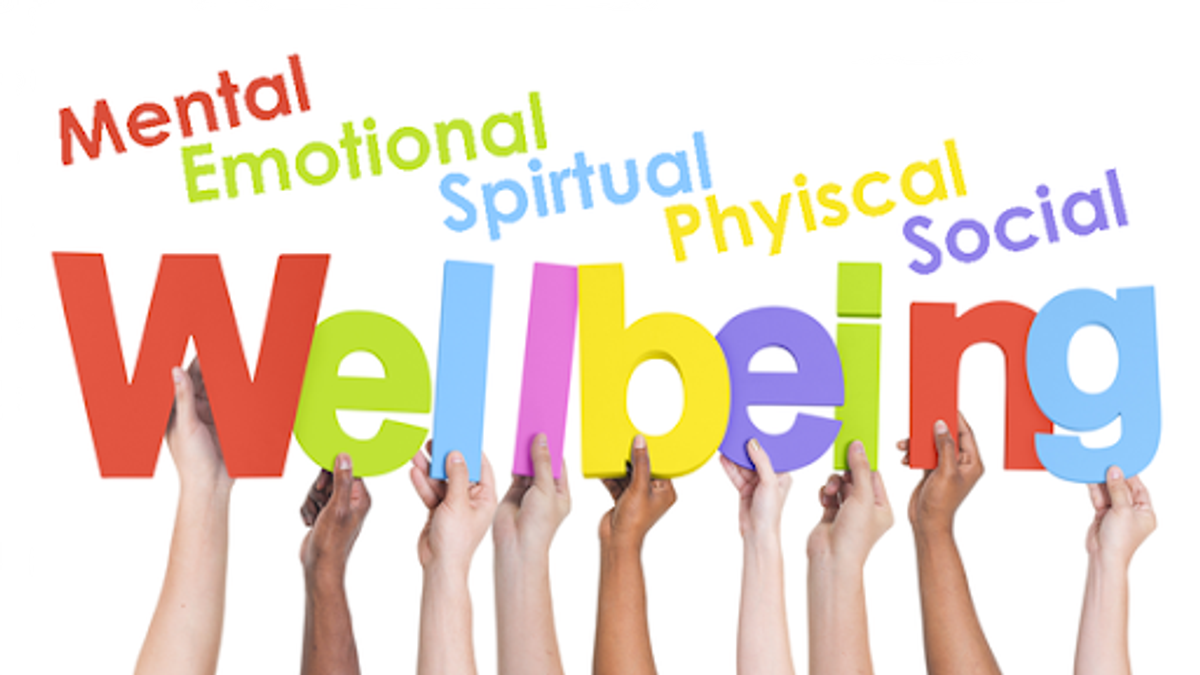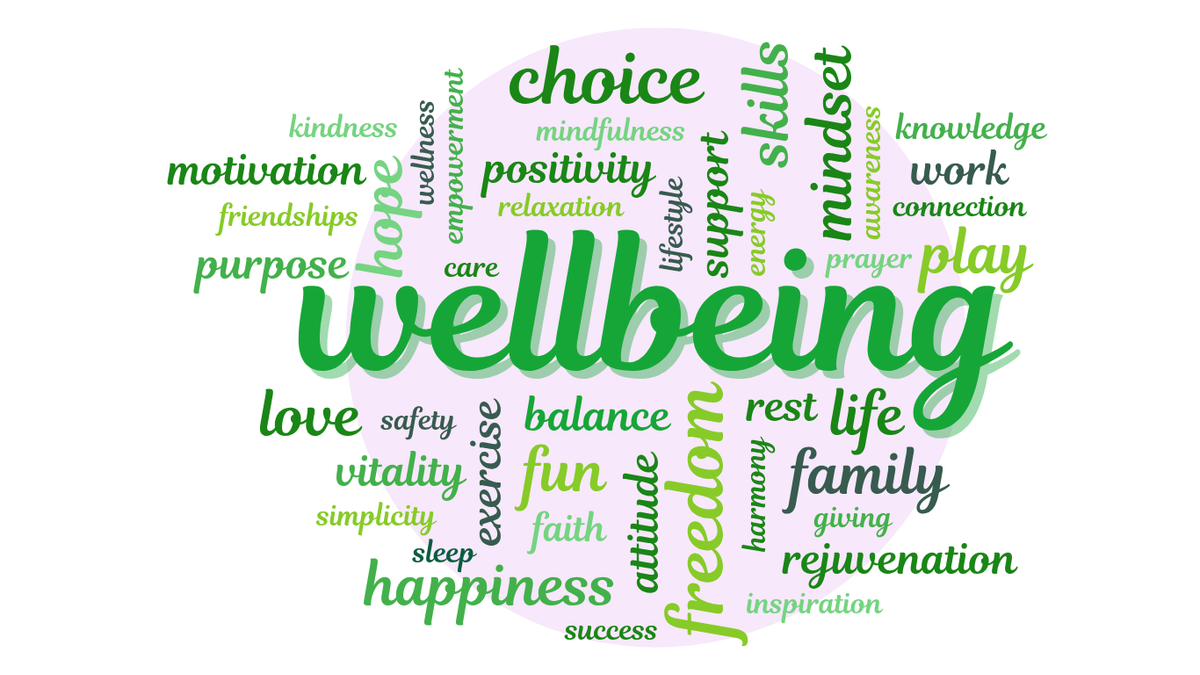Wellbeing
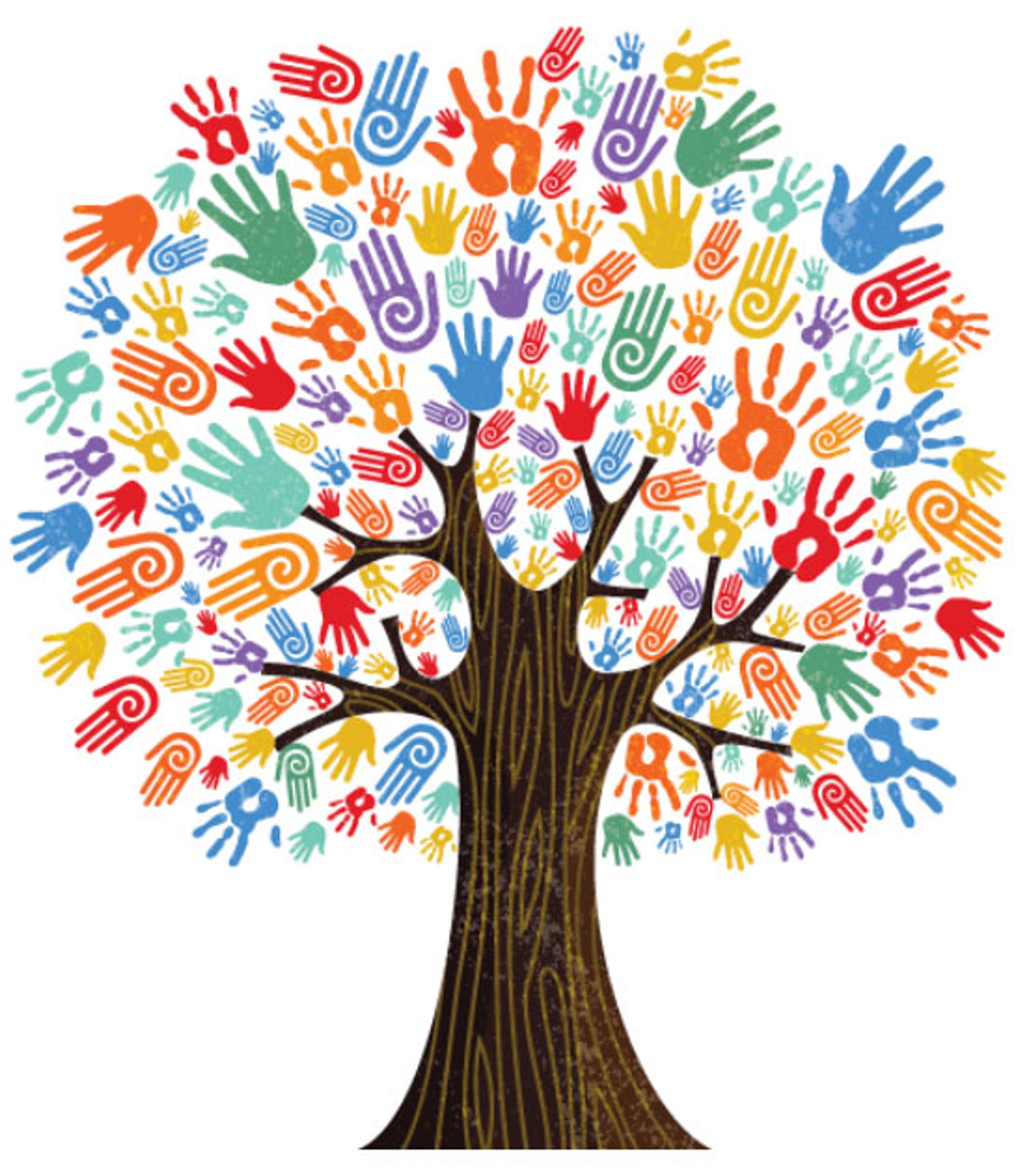
Health and wellbeing are important parts of our daily lives - whether we’re learning at school, working, or spending time together at home. While taking care of ourselves, being active, and getting enough rest is essential, looking after our emotions and mental health matters just as much. When both children and parents learn how to understand, express, and manage their feelings, it can lead to better communication, stronger relationships, and a more positive, calm home environment. Building these healthy habits together helps everyone feel more confident, connected, and ready to face life’s challenges.
Our year levels did some reflection about what Health and Wellbeing means to them and what they enjoy about Health and Wellbeing classes.
Here are their thoughts.
Grade Prep -
Wellbeing is about understanding and expressing our feelings and emotions and finding ways to feel calm and happy. When we understand how we feel, it helps us care for ourselves and support others when they're feeling upset. Health means looking after our bodies by staying active, eating healthy foods, drinking water, and keeping ourselves healthy.
In our Health and Wellbeing lessons, we enjoy calm activities that help us relax. Talking about our problems makes us feel better and teaches us how to cope during difficult times. We share our experiences, practice being courageous, resilient and learn how to respond in different situations. We love learning to speak up for ourselves and others, building our self-confidence, and, most importantly, appreciating the positive things in our lives.
Grade 1 - Health and Wellbeing is about looking after ourselves … mentally and physically. It’s about learning how to talk about how we are feeling and how to deal with our feelings. Checking in on how others are feeling is an important part of caring for one another.
In our Health and Wellbeing lessons we enjoy talking about our feelings and emotions while also learning how to calm ourselves down when we are feeling upset or angry. Wellbeing classes make us feel calm because it’s a quiet time to talk.
Grade 2 - Health and Wellbeing is about doing what's right for you. It’s also about checking in with other people and working on making yourself happy. Being respectful to yourself and others is also important. It’s about helping others who are struggling, listening to each other, standing up for yourself, your peers and family.
In our Health and Wellbeing classes we enjoy problem solving, learning new things about us and how we can be kind to others and ourselves. We feel comfortable sharing our feelings and emotions and Joe doesn't demand answers, we can share if we want.
Grade 3 - Health and Wellbeing is about learning to control our emotions, looking after our mental health while learning and using different strategies to solve problems. It’s also about having a positive mindset, being mindful and teaching ourselves to be strong in our own body. It is about making the right choices and being the best person we can be.
In our Health and Wellbeing classes we enjoy doing calming activities that calm our bodies. We feel relaxed talking about our problems and it helps us to be ok in bad situations while discussing strategies that we can use. We talk about our life story, learning to cope with situations, learning how to react, being brave so we know what to do. We are learning to stand up for ourselves and others and believe in ourselves. Most importantly, we are focussing on being grateful for what we have in our lives.
Grade 4 - Health and Wellbeing is about solving problems while being kind, respectful and grateful for what we have in our lives. It helps us to stay on track, teaches us life skills and different strategies on how to solve problems and not letting them sit in our brain. It’s also about thinking before we act.
Our Health and Wellbeing classes help us to stay calm, relaxed while we learn strategies to use that help us solve problems. We enjoy our mindfulness and it’s a time where we don’t have to worry about anything else … we can just talk. We feel comfortable to share our thoughts and problems and no one is judged. Our Wellbeing classes are lots of fun and most importantly, we feel comfortable going to Joe for advice.
Grade 5 - Health and Wellbeing means being healthy and keeping a positive mindset. It’s also about our feelings, emotions and how to react to different problems. Health and Wellbeing is really important and means a lot to us. It helps us connect with people and helps us show empathy.
We enjoy Health and Wellbeing classes because it helps us show empathy and spread kindness everywhere we go. We feel comfortable talking about stressful situations and the strategies we can use to get through them. Health and Wellbeing is a very important subject and a very safe place to talk about our health and feelings. We enjoy being able to just chill out during our classes.
Grade 6 - Health and Wellbeing is about taking care of ourselves and asking for help when we need it so we can learn strategies to resolve our problems. It’s also about being grateful for who we are and all the positive things in our lives. Sometimes we can’t work through problems alone, so we need to remember that we have people in our lives that we trust to turn to when we need.
Our Health and Wellbeing classes are a good time to stop and do some self reflection. The discussions that we have are meaningful, about real life and no one is judged. If we are going through some hard times, these classes help with our mental health. It gives us time to chill but we still learn and we enjoy ending the sessions with good vibes.
OUR SCHOOL VALUES
We are continuing to reflect on our School Values – Resilience, Respect, Responsibility, and Learning Success – by exploring why they matter and how we can demonstrate them in our everyday actions. Lately, we’ve been placing a strong focus on showing respect and empathy, both at school and at home. It’s all about treating others the way we would like to be treated and supporting one another with kindness and understanding.
This term we have been covering the following topics:
Grade Prep
Topic 4: Problem Solving; Topic 5: Stress Management; Topic 6: Help Seeking
Grades 1, 3 & 5
Topic 5: Stress Management; Topic 6: Help Seeking
Grades 2, 4 & 6
Topic 4: Problem Solving; Topic 6: Help Seeking
PROBLEM SOLVING
Students have been learning a range of problem-solving techniques to apply when confronting personal, social and ethical dilemmas. They have been engaging in scenario-based learning tasks to practise their problem-solving skills in relevant situations.
The Importance of Problem Solving for Health and Wellbeing
Problem solving is a vital life skill that plays a big role in supporting both our mental and emotional wellbeing. When children and adults learn how to calmly and confidently work through challenges, they’re better equipped to handle everyday stress, make thoughtful decisions, and maintain a sense of control in their lives.
Here’s how problem solving supports health and wellbeing:
- Reduces stress – When we face a problem and don’t know how to deal with it, it can lead to anxiety, frustration, or even helplessness. Problem solving helps break down challenges into manageable steps, reducing feelings of being overwhelmed.
- Builds resilience – Every time a child works through a problem, they grow more confident in their ability to handle future setbacks. This builds emotional strength and resilience over time.
- Improves relationships – Good problem solving skills help children navigate social situations, manage conflicts, and communicate more effectively with others, leading to healthier relationships.
- Encourages independence – Learning to solve problems gives children a sense of ownership and responsibility over their actions and choices, which supports their self-esteem and confidence.
STRESS MANAGEMENT
Students have been working on considering the causes of stress and working on developing a range of self-regulation and coping strategies they could draw on to manage stressful situations.
The Importance of Managing Stress for Health and Wellbeing
Stress is a normal part of life, but when it becomes overwhelming or constant, it can affect our physical, emotional, and mental health. Learning how to manage stress in healthy ways is an essential skill for overall wellbeing … for both children and adults. Common ways to manage stress include talking to someone you trust, practicing mindfulness or breathing exercises, staying active, getting enough sleep, and making time for rest and fun.
Here’s why managing stress matters:
- Supports mental health – High levels of stress over time can lead to anxiety or low mood. Managing stress helps protect our emotional wellbeing and keeps us feeling more balanced and in control.
- Improves physical health – Persistent stress can affect sleep, appetite and energy levels. Managing stress helps reduce the risk of stress-related health issues.
- Promotes better focus and learning – When stress is managed well, the brain can think more clearly and make better decisions. This supports learning, concentration, and problem-solving … especially important for students.
- Strengthens relationships – Stress can sometimes lead to irritation or conflict. Learning how to manage it helps us respond more calmly and maintain positive, respectful relationships with others.
- Builds resilience – By learning and practicing healthy coping strategies, children and adults become more confident in handling life’s ups and downs, which builds emotional strength over time.
HELP SEEKING
Students have been working on developing skills and knowledge for peer support, peer referral and help-seeking.
The Importance of Help-Seeking for Health and Wellbeing
Knowing when and how to ask for help is an important part of staying mentally, emotionally, and physically healthy. Help seeking is a strength, not a weakness and it's a key skill that supports wellbeing throughout life. By encouraging open conversations and showing that it’s okay to ask for help … whether it’s for schoolwork, friendships, or emotions … we build a culture of care and trust that supports everyone’s health and wellbeing.
Here’s why help seeking matters:
- Reduces stress and anxiety – When someone shares their worries or concerns with a trusted person, it can feel like a weight is lifted. Talking things through helps ease emotional pressure.
- Improves mental health – Reaching out for support early can prevent problems from becoming bigger. Whether it’s a friend, family member or teacher, getting the right support at the right time makes a big difference.
- Builds connection and resilience – Asking for help strengthens relationships and reminds us that we’re not alone. It also helps children and adults feel more connected, supported and safe.
- Encourages problem-solving and growth – Support from others can offer new ideas, perspectives or strategies that we might not have thought of on our own.
- Promotes a healthy mindset – Teaching children that it is okay to ask for help encourages emotional openness and helps break down the stigma around mental health.
Problem-solving, stress management, and asking for help are all connected and play an important role in our everyday life. Solving problems helps us feel more in control. Managing stress helps us stay calm and focused. When things get too hard, asking for help gives us support. These skills help us deal with challenges in a healthy way.
Take care, look after yourself and each other.
Wellbeing team

